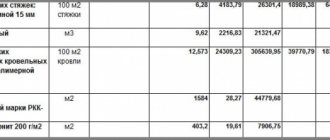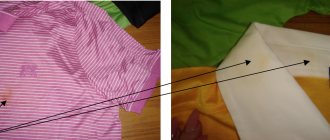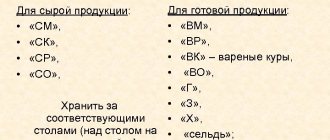In accordance with procedural legislation, the burden of proof of the circumstances referred to by a party to the case in court proceedings rests with that party. One of the types of evidence in the case is the expert’s opinion and the results of the examination carried out as part of the trial.
ATTENTION: our lawyer will not only help to order a forensic examination of the case, but also to challenge the already conducted examination at the request of one of the parties.
Grounds for ordering a forensic examination
There are often cases when it is necessary to appoint an expert examination of a case. This is usually due to the need for special knowledge in various fields: technology, science, crafts, art. Expert opinions are also required when assessing damage caused, for example as a result of an accident or fire. In essence, it is appointed when there is simply no other way to establish a fact that is important for the court to make a decision.
The court, by its decision or at the request of persons participating in the case, appoints an examination and entrusts its conduct to a specific expert, several experts or a forensic institution. You, as a party to the case, have the right to contact an independent (commercial) organization to conduct an examination within the framework of the case.
USEFUL : watch the VIDEO on the issue of appointing and challenging an expert examination in the case and subscribe to my YouTube channel to be able to receive legal advice and answers to your questions through comments on the videos:
How is the examination assigned?
A request for an examination in a particular area must be formalized in the form of a corresponding petition. Having considered the submitted petition, the court makes a decision on its full or partial satisfaction. The court also has the right to refuse to satisfy the submitted petition.
The parties participating in the trial have the right to:
- Formulate questions that the examination should provide answers to. In this case, the court has the right to disagree with the presented wording, while explaining the reasons for the disagreement;
- Ask the court to entrust the examination to a certain expert organization or an independent expert. In addition, the parties have the right to insist on the rejection of the proposed options;
- Familiarize yourself with the court's decision to conduct an examination;
- Be personally present during the examination, provided that presence is permissible;
- Read the prepared expert opinion;
- Apply to the court with a request to conduct an additional examination.
The procedure for appointing a forensic examination
A forensic examination is ordered by the court. What is the procedure for appointing such an examination?
- An expert examination may be ordered by the court at the request of one of the parties to the case or at the request of both parties. However, the filing of a petition by a party to appoint an appropriate examination is not a 100% guarantee that the court will definitely appoint such an examination, since in some cases the court may come to the conclusion that the appointment of such an examination in the case is not required or that the requested examination cannot be appointed at all, since it has nothing to do with the dispute between the parties to the case.
- An examination may also be ordered at the initiative of the court if clarification of issues requiring special knowledge is necessary.
The court, after discussing the issue of ordering an examination, retires to the deliberation room and makes an appropriate decision in the form of a ruling.
If the petition is granted, then in the ruling the court will indicate that an examination is being appointed, what kind, who is entrusted with carrying it out, and the period for conducting such an examination may also be indicated. In addition, specific questions will be asked of the experts.
However, the court does not always issue a separate ruling to refuse to order an examination. The court indicates the refusal to order an examination in the text of the decision.
When is it held?
The decision on the length of time allotted for conducting the examination is determined by the court independently.
If the deadlines set by the court for conducting the examination are violated, the expert organization or expert carrying out the research may be held accountable in the form of a fine.
Until the results of the examination are presented to the court, the trial in the case is suspended. When the expert opinion is received by the court, the proceedings in the case are resumed.
Deadlines for appointment of forensic examinations
The court decides to order an expert examination during the trial, i.e. After filing the petition, the court retires to the deliberation room and makes a ruling.
When ordering an examination, the court may set a specific deadline for the expert to conduct the examination, especially if the expert’s letter specifies the period that he needs to carry out the examination.
For certain categories of cases, the court does not set a deadline for conducting an examination, but simply appoints an appropriate examination, for example, on declaring a citizen incompetent or establishing paternity.
How to write a document correctly
Remember! The petition is a procedural document consisting of the following sections:
- “Caption”, which indicates the name of the court to which the petition is being submitted, the number of the case in which the petition is being filed, as well as information about the parties to the trial. It is written in the upper right corner of the sheet;
- The name of the document is “Application for the appointment of an examination.” Written in the center of the sheet;
- Main part. Here it is necessary to state in as much detail and as briefly as possible what circumstances of the case under consideration require an examination. This part also indicates to whom the party filing the petition wants to entrust the examination;
- Resolution part. This part specifies the exact questions to which the examination must answer. An unambiguous request to conduct an examination is also indicated;
- The petition is sealed with the handwritten signature of the person who submits it, indicating the date of signing and a transcript.
Petition to order a forensic examination
When drawing up and submitting a request for an examination, it is important to remember:
1) the petition is submitted to the court in writing, with copies provided for the participants in the case;
2) a request to appoint an examination must contain the following:
- what case is the petition for?
- names of the expert organization ready to carry out the examination
- questions you want to pose to the expert. This is a very important point, since the decision in the case depends on correctly posed questions and the right questions.
- terms of examination
- a response from the expert organization ready to conduct the examination, copies of certificates confirming the specialization of the expert who will conduct the examination, a copy of the specialist’s diploma, etc. must be attached.
- when entrusting an examination to a person who is not a state forensic expert, it is important for the judge to know the expert’s last name, first name, patronymic, as well as information about his education, specialty, experience and position
3) the other party to the case also has the right to object to the examination, represent other expert organizations for their part, and pose their own questions to the experts.
It should be remembered that the court is impartial and cannot take anyone’s side, and your opponents may remain silent, seeing that you have no idea about the need for an examination, do not know all the intricacies of jurisprudence, do not realize that it will help you win the case.
But the following points must be taken into account:
- not a single piece of evidence for the court has pre-established force, that is, one cannot rely on the results of this examination as the main evidence in the case
- The practice has become increasingly common when the court distrusts the results of independent specialists; any examination can be challenged.
- depending on the questions you pose, the volume of work and complexity of the research, as well as depending on the qualifications of the specialists, the price for the examination sometimes reaches five-digit sums
What types of examinations are there?
In accordance with the norms of the current legislation of the Russian Federation, examinations are usually divided into the following types.
Depending on the stage:
- primary;
- repeated;
- additional.
By the number of participating experts:
- single - carried out by one expert;
- commission - carried out by a commission consisting of several experts.
The expert opinion can be given both in one area and simultaneously in several areas. This type of examination is called comprehensive.
The applicant must clearly understand what specific conclusion is required from the expert. The main importance is attached to the issues submitted for consideration by the expert.
Let's take a traffic accident as an example. It is permissible to conduct the following types of road transport examination: traceological, technical-diagnostic and automotive technical.
Attention! Our qualified lawyers will assist you free of charge and around the clock on any issues. Find out more here.
Appointment of a repeated forensic examination
Appointment of a repeated forensic examination is also possible in certain cases, namely, if doubts arise that the initial examination was carried out correctly, that the expert’s conclusion is reasonable. In addition, the need for a re-examination may arise if there are contradictions in the conclusions of several experts, or the expert’s conclusions contradict other evidence available in the case file.
In addition to the above, the court may order a re-examination if the procedural rights of the participants in the case were violated.
Reasons for refusal of forensic examination
The reason for refusal to order an examination may be the incorrect formulation of questions that should be posed to the expert, i.e. The issues stated in the petition are not relevant for resolving the case on the merits.
In addition, the court will refuse to order an examination if the questions that the party asks to pose to the expert do not require special knowledge, and the resolution of these questions is the prerogative of the court, by analyzing the documents available in the case file.
The court will also refuse to order an examination if funds are not deposited into the court’s deposit account to pay for the examination.
In general, according to emerging practice, if the court is interested in conducting an examination, it will order an examination, even if the money has not been deposited with the court, thereby giving the party the opportunity to deposit money after the appointment of the examination. In addition, in some cases in courts of general jurisdiction, if the plaintiff has a difficult financial situation, then payment for the examination can be made by the judicial department, but this is the exception rather than the rule.
Necessary expenses
Note! The examination is paid for by the party filing the request for its conduct. If the results of this examination help the party win the trial, then the costs of conducting this examination, along with other legal costs, may be recovered from the losing party.
You can file a petition for reimbursement of legal costs (for a representative, conducting an examination, paying state fees, etc.) both during the process and after its completion.
Appealing a refusal to conduct an examination of a case
A refusal to order an examination can be appealed together with a court decision, since in arbitration cases and courts of general jurisdiction, courts, as a rule, do not issue a separate ruling on the refusal to order an examination, and there is no provision for the possibility of appealing such a determination.
At the same time, when considering bankruptcy cases, it is possible to appeal against rulings refusing to appoint an examination.
Taking into account the above, objections to the court’s refusal to order an examination must be submitted by the party when appealing decisions, i.e. indicated in the appeal. The statement of these objections may lead to the fact that the appellate court will come to the conclusion that the party in the case is deprived of the opportunity to provide additional evidence, which in turn will lead to the cancellation of the judicial act.
| To the Arbitration Court of the Moscow Region Address: 107053, Moscow, Academician Sakharov Ave., 18 |
| From the plaintiff: LLC "SP" Location address: Moscow region, <…> |
| Defendant: OOO "PRS" OGRN <…> INN <…> Location address: Moscow region, city <…> |
| Third party: NPS “SR” OGRN <…> INN <…> |
| Claim price: 6,040,547 rubles 60 kopecks , of them: 2 476 373,02 – penalty for delay in completion of work; State duty: 53,202 rubles 74 kopecks Case: No. A41-<…>/14 |
OBJECTIONS regarding the appointment of a judicial construction and technical examination
In the proceedings of the Arbitration Court of the Moscow Region (hereinafter also referred to as the “court”
) there is an arbitration case
No. A41-<…>/14
(hereinafter also referred to as
“arbitration case” / “case”
) on the claim of SP LLC (hereinafter also referred to as
“customer”
) to PRS LLC (hereinafter also referred to as
“contractor”
) for the collection of funds.
Despite the facts stated below and the following actions of PRS LLC:
- — At the stage of pre-trial settlement of the dispute, the contractor twice received written demands from SP LLC to conduct an examination in order to determine the inadequate quality and incomplete scope of work performed under the contract, but twice ignored these requirements.
- — At the stage of pre-trial settlement of the dispute, the contractor once directly refused to conduct any examinations in order to determine the inadequate quality and incomplete scope of work performed under the contract ( an act with a note about the contractor’s refusal is available in the materials of the arbitration case
-
Volume I, pp. 75
). - — The presence in the materials of the arbitration case of an expert opinion on the results of the examination, in which the contractor refused to participate and repeatedly avoided.
- — Repeated receipt by the contractor of written demands from SP LLC to eliminate identified deficiencies in the work ( available in the materials of the arbitration case
-
Volume I, pp. 72
). - — Repeated receipt by the contractor of written notifications from SP LLC regarding the establishment of reasonable deadlines for eliminating deficiencies in the work;
during the consideration of the arbitration case of PRS LLC, abusing its procedural rights, and in order to delay the trial
filed a petition in accordance with Art. 82 of the Arbitration Procedure Code of the Russian Federation on the appointment of a judicial construction and technical examination.
Structuring the text of the petition showed that in addition to the requirements for the appointment of a forensic construction and technical examination by the contractor, the arguments about the unfoundedness of the expert’s conclusions based on the results of the examination, which the contractor refused to participate in and repeatedly avoided, were
(
the expert opinion is available in the materials of the arbitration case
–
Volume I, case file 82 – case file 101
).
LLC "SP" declares that the arguments of LLC "PRS" about the unfoundedness of the expert's conclusions based on the results of the examination , in which the contractor refused to participate and repeatedly avoided
and the petition to appoint a judicial construction and technical examination are unlawful, unfounded and clearly aimed solely at delaying the trial and disrupting the court hearing, as well as causing property damage to SP LLC.
According to Part 5 of Art.
159 of the Arbitration Procedure Code of the Russian Federation, the arbitration court has the right to refuse to satisfy an application or petition if they were not timely filed by a person participating in the case due to abuse of their procedural rights and are clearly aimed at disrupting the court session, delaying the trial, preventing the consideration of the case and the adoption of legal and a reasonable judicial act.
I would like to draw special attention to the fact that the dispute regarding the work performed improperly and incompletely by the contractor arose on March 13, 2014 (PRS LLC received a notice of termination of the contract by SP LLC due to failure to fulfill the contractor’s obligations). The statement of claim and the materials of the expert opinion, in which the contractor refused to participate and repeatedly evaded,
was received by PRS LLC on June 05, 2014.
The preliminary hearing was held on July 9, 2014. Abusing its procedural rights and acting in bad faith, PRS LLC filed a petition to appoint a judicial construction and technical examination only on August 14, 2014, that is, 7 (seven) calendar months after the dispute arose.
The above actions of PRS LLC are dishonest, aimed solely at delaying the trial and disrupting the court hearing, preventing the consideration of the case and the adoption of a lawful and justified judicial act, as well as causing property damage to SP LLC.
In order to save procedural means, the arguments of PRS LLC about the unfoundedness of the expert’s conclusions based on the results of the examination, in which the contractor refused to participate and repeatedly avoided
are set out in the odd-numbered paragraphs of these objections. The objections of SP LLC to each argument of PRS LLC will be set out in even-numbered paragraphs of these objections.
1.
Argument of PRS LLC regarding non-receipt of notification of the date and time of the examination.
LLC "PRS" in the petition indicates that the contractor was not notified by the customer about the date and time of the examination, and therefore was not present during its conduct.
2.
Objections of SP LLC
.
PRS LLC abuses its rights in violation of paragraph 1 of Art.
10 of the Civil Code of the Russian Federation and violates procedural duties in violation of
Part 2 of Art.
41 Arbitration Procedure Code of the Russian Federation .
LLC "PRS" twice received and ignored the requirements of LLC "SP" to conduct an examination in order to determine the quality and volume of work performed under the contract ( Requirement for an examination dated 04/03/2014 No. <...>
–
I volume l.
d. - 72 ).
After twice receiving and ignoring the requirements of SP LLC to conduct an examination, PRS LLC, represented by Director K.A.P., Head of VET D. and Deputy. Director B., there was a complete refusal to conduct any examinations in order to determine the inadequate quality and incomplete scope of the work performed under the contract, which is confirmed by the signature of these persons ( I volume ff. - 75
).
Thus
, the notification of the contractor about conducting an examination in relation to the poor quality and incomplete work performed by him under the contract has no legal significance in the case, since in the aggregate of the contractor’s three-time refusal to conduct any examinations in order to determine the inadequate quality and incomplete work performed under the work contract, PRS LLC clearly and unequivocally expressed its will that there was no need for its participation in conducting any examinations.
Subsequent dishonest attempts by PRS LLC to recognize the actions of SP LLC (conducting an examination, in which PRS LLC refused to participate and repeatedly evaded
, without the participation of the contractor) as some kind of violation, for formal reasons, of the rights of the limited liability company PRS , cannot serve as a basis for satisfying the demands of PRS LLC to appoint an expert examination when considering this legal dispute and recognizing as legitimate the arguments of PRS LLC about the unfoundedness of the expert’s conclusions based on the results of the
examination, in which the contractor refused to participate and repeatedly avoided.
3. Argument of PRS LLC about the expert’s incorrect definition of the object of expert research.
PRS LLC indicates in its petition that the subject of the expert examination was the work provided for in the contract, to which PRS LLC has nothing to do.
4.
Objections of SP LLC
. PRS LLC, once again, repeatedly using attempts to cling to any formal methods, is trying to mislead the court.
The expert opinion was drawn up based on the results of an examination of the work performed specifically by PRS LLC under an agreement concluded between SP LLC and PRS LLC (Agreement No. <...> contract for construction and installation work dated August 07, 2014), that is confirmed by the following materials of the arbitration case:
- 4.1.
The examination materials reflect the object of the study - a non-insulated warehouse building located at the address: <...> (
I volume, pp. pp. 88, 89, 91, 95
). The specified object is the object provided for by the contract. - 4.2.
The expert opinion, among other things, reflected the lack of results in the execution of work under additional agreement No. 1 to the contract (
I volume ld. ld. – 88, 91, 95
). - 4.3.
The subject of the expert study was the work provided for by contract No. <…> contract for construction and installation work dated August 07, 2014, as well as additional agreement No. 1 to it (
I volume ld. ld. 91, 92, 95
).
Thus,
the entire expert opinion is drawn up in relation to the work provided for in the agreement concluded between SP LLC and PRS LLC. The arguments of PRS LLC that the subject of the expert examination were works stipulated by the contract, to which PRS LLC has nothing to do, are false, unfounded, unlawful and aimed at misleading the court.
5. Arguments of PRS LLC about the unfoundedness of the expert’s conclusions.
PRS LLC indicates in its petition that the expert’s conclusions about the contractor’s violation of construction and installation work technology and the use of low-quality materials and structures in the construction process are unfounded.
6. Objections of SP LLC.
The arguments of PRS LLC were stated
in violation of Part 1 of Art.
65 Arbitration Procedure Code of the Russian Federation .
The materials of the arbitration case contain documents confirming the organizational, professional, and qualification status of the expert organization and the expert. The inspection of poor quality and incomplete work performed by the contractor was carried out by an expert who visited the site of their improper execution. The expert opinion contains conclusions based in strict accordance with current legislative and regulatory documents in construction (SNiP, Civil Code of the Russian Federation, GOST, etc.), and therefore they cannot be considered unfounded.
The contractor, once again, is attempting to unlawfully mislead the court.
7. Arguments of PRS LLC about the expert’s erroneous reference to the design documentation completed by PRS LLC.
PRS LLC argues in its petition that the expert erroneously refers to the design documentation completed by the contractor. The contractor motivates his arguments by the fact that PRS LLC did not develop project documentation, due to his lack of obligation to prepare project documentation.
8. Objections of SP LLC.
PRS LLC once again provides false information.
The contractor's arguments about non-acceptance of obligations to carry out design work are refuted by clause 2.2. agreement: “ The work will be carried out in 6 stages.
Stage 1. Design work and linking the building to the general plan
».
Thus,
PRS LLC was obliged to carry out design work.
In addition, the local estimate drawn up by the contractor directly indicates the “Base”: Project.
Thus,
the local estimate was drawn up by the contractor based on the design documentation.
Design work is engineering and architectural design work, during which the entire cycle of work is documented from concept and sketch to calculations of all elements. Design work is carried out for an accurate idea of how exactly the future object will be built and an accurate representation of the future object before the start of work and related tasks. PRS LLC assumed obligations to carry out design work and link the building to the general plan (clause 2.2 of the agreement). To confirm the fulfillment of this clause of the contract, the contractor submitted project documentation to SP LLC, consisting of:
- — General plan of the building provided for in the contract. The document drawn up based on the results of the design work was signed on behalf of PRS LLC by director K., architect R. and designer D.. The work was carried out according to the order (assignment) of LLC SP, which is also reflected in the document drawn up based on the results of execution stipulated by the work contract.
- — Architectural solutions for the building provided for in the contract. The document drawn up based on the results of the above work was signed on behalf of PRS LLC by director K., architect R. and designer D. The work was carried out according to the order (assignment) of SP LLC, which is also reflected in the document drawn up based on the results of execution, works provided for in the contract.
- — “Reinforced concrete structures” in relation to the building provided for in the contract. The document drawn up based on the results of the above work was signed by PRS LLC. The work was carried out according to the order (assignment) of SP LLC, which is also reflected in the document drawn up based on the results of the work stipulated by the contract.
- — “Metal structures” in relation to the building provided for in the contract. The document drawn up based on the results of the above work was signed by PRS LLC. The work was carried out according to the order (assignment) of SP LLC, which is also reflected in the document drawn up based on the results of the work stipulated by the contract.
Thus,
These documents and the agreement confirm not only the fact that the responsibility for the preparation of design documentation was assumed by PRS LLC, but also the fact that the composition and content of the specified design documentation were known to the contractor.
Hence,
the above false arguments of PRS LLC are fictitious, unsubstantiated and aimed solely at causing harm to SP LLC and misleading the court.
9. Argument of PRS LLC about numerous discrepancies between the design documentation transferred to the expert and the design documentation provided by the contractor to the customer.
PRS LLC claims in its petition that based on the expert’s conclusion, the design documentation provided by the customer to the expert organization has numerous discrepancies with the design documentation allegedly received by the contractor from Mendeleev Metal Structures Plant LLC and presented by the contractor to the customer.
10. Objections of SP LLC.
The above statements by PRS LLC are unfounded and untrue.
LLC "PRS" transferred to LLC "SP" the design documentation specified in paragraph 8 of these objections. It was this design documentation that SP LLC handed over to the expert for examination, in which the contractor refused to participate and repeatedly avoided.
There are no discrepancies between the design documentation submitted to the expert and the design documentation submitted by the contractor to the customer (clause 8 of these objections). The above arguments of PRS LLC are false.
11. Argument of PRS LLC about the expert’s incorrect conclusions regarding the methods used by the contractor to carry out work on reinforcing foundation frames.
PRS LLC indicates in its petition that the expert made an erroneous conclusion regarding the inadmissibility of welding reinforcement during the work. PRS LLC also provides links to the following documents:
- 11.1.
Clause 8.2.3. SP 63.13330.2010. - 11.2.
Order of the Government of the Russian Federation dated June 21, 2010 No. 1047-r. - 11.3.
Clause 5.5. TSN 102-00. - 11.4.
Standard STO ASChM 7-93. - 11.5.
GOST 52544-2006.
12. Objections of SP LLC.
PRS LLC made attempts to confuse both the customer and the court.
The expert report does not contain any expert conclusions about the inadmissibility of welding reinforcement during work on reinforcing foundation frames. In fact, the expert identified deviations of PRS LLC from the project that were not agreed upon with SP LLC, namely, the contractor welded it instead of tying the reinforcement.
In order to save procedural means and respect the court, SP LLC will not describe the illegality and unreasonableness of the contractor’s actions, expressed in citing references to those specified in clause 11.1. – clause 11.5. of these objections documents, since they do not relate in any way to the expert’s presented conclusions.
The sole purpose of PRS LLC is to create conditions for the court and SP LLC that make it difficult for a fair and objective resolution of the dispute that has arisen.
13. Arguments of PRS LLC about the expert’s erroneous determination of the ratio of the plinth and grillage in poorly performed and incomplete work.
PRS LLC claims that the concepts of plinth and grillage were allegedly replaced by the expert.
14. Objections of SP LLC.
PRS LLC, once again, is making attempts aimed at misleading the customer and the court.
LLC "PRS" in violation of Part 1 of Art.
10 of the Civil Code of the Russian Federation abuses the right.
To examine the object of examination (work provided for in the contract), the expert used a project provided by the contractor.
According to the “Architectural Solutions” section of this project, both the presence of a grillage and the presence of a plinth are provided.
The statements of PRS LLC about the absence of a grillage and the expert’s erroneous determination of the base instead do not correspond to reality and are false, given solely for the purpose of casting doubt on the results of the examination, in which the contractor refused to participate and repeatedly avoided.
15. Arguments of PRS LLC regarding the definition of the concept of “building base” and its practical purpose.
PRS LLC in its petition provides a biased definition of the concept of “basement of a building” and its practical purpose.
16. Objections of SP LLC.
This biased determination was made by the contractor solely for the purpose of evading responsibility for compensation for property damage caused to the customer.
PRS LLC defines that the base of a building “ is the enclosing, non-load-bearing part of the structure designed to protect the lower, near-ground part of the building from the penetration of moisture from outside and prevent the shedding of earth masses when there is a difference in height between the internal and external parts of the building
" This definition does not correspond to reality and, once again, demonstrates the lack of professionalism and incompetence of PRS LLC in the field of construction and contract work.
The normative definition of the concept of building base and its practical purpose is established in SNiP I-2 “Construction Terminology”
and means the following: “
BASE
- the lower part of the outer wall of a building or structure, lying directly on the foundation and subject to frequent mechanical, temperature and other influences.”
Thus, PRS LLC presents erroneous arguments that demonstrate the unprofessionalism and incompetence of PRS LLC in the field of construction and contract work.
17. The argument of PRS LLC about the absence in the design and actually erected structure of support of load-bearing structures on the plinth and the absence of grounds allowing to classify the plinth as a grillage.
PRS LLC claims that from the design and the actually erected structure it is clear that there are no “
supports
” of load-bearing structures on the plinth and there are no grounds to classify the plinth as a grillage.
18. Objections of SP LLC.
PRS LLC, once again, presents a biased and untrue argument. The refutation of the contractor’s indicated argument follows from clauses 14 and 16 of these objections and demonstrates the lack of professionalism and incompetence of PRS LLC in the field of construction and contract work.
19. Argument of PRS LLC about the absence, in accordance with the conclusion of the examination, in which PRS LLC refused to participate and repeatedly evaded the need for the contractor to have an SRO certificate.
PRS LLC claims that, in accordance with Art. Art. 47, 48, 52 of the Town Planning Code of the Russian Federation and the conclusion of the examination, in which PRS LLC refused to participate and repeatedly evaded, the contractor does not need to have an SRO certificate to carry out the work provided for in the contract.
20. Objections of SP LLC.
LLC "PRS" carried out an incorrect interpretation of the rules of substantive law.
SP LLC and PRS LLC entered into the contract proposed by the contractor in full compliance with clause 4 of Art. 421 and paragraph 1 of Art. 432 Civil Code of the Russian Federation
, at its own discretion, determining its provisions on all essential terms.
According to the preamble of the agreement, PRS LLC acted on the basis of Certificate No. <…> of admission to work that affects the safety of capital construction projects, issued by NP SROS “SR” dated <…>.
According to additional agreement No. 1 dated August 19, 2013 to the contract, PRS LLC assumed obligations to carry out geological surveys on the customer’s territory to determine the composition and bearing capacity of soils with the involvement of a specialized organization
and subsequent provision to the customer of a survey report. The customer's repeated written demands to provide information about the proposed contractor for geological surveys that were never carried out (provided for in additional agreement No. 1) were left by the contractor without a reasoned response.
Thus,
The current legal situation regarding the required availability of an SRO certificate for LLC "" and its obligatory provision to the customer is regulated not by the provisions of the norms of the Town Planning Code of the Russian Federation, but by the provisions of the norms of the Civil Code of the Russian Federation on freedom of contract, the grounds for the emergence of civil rights and obligations, their proper use and execution, as well as inadmissibility of unilateral refusal to properly fulfill obligations. PRS LLC carried out an incorrect interpretation of substantive law, once again demonstrating the unprofessionalism and incompetence of the contractor.
21. Questions submitted by PRS LLC for approval of the examination.
PRS LLC requests that the following questions be raised for approval of the examination:
- 21.1.
On determining the types, volumes and costs of work that were performed at the facility at the address: <…> in accordance with the contract dated August 7, 2013 No. <…> and additional agreements thereto: No. 1 dated 08/19/2013, No. 2 dated 08.26.2013, No. 3 of 10.10.2013, No. 4 of 10.11.2013 - 21.2.
On determining the compliance of the specified types, volumes and costs of work with those specified in the estimates agreed upon by the parties, attached to the specified contract and additional agreements. If they have not been completed in full, indicate the types, volumes and cost of the work actually performed. - 21.3.
On determining the compliance of the foundation and plinth at the facility at the address: <…> with the agreement dated August 7, 2013 No. <…> and current regulatory requirements.
22. Objections of SP LLC.
The questions presented by PRS LLC, given the evidence available in the materials of the arbitration case, do not have legal significance for resolving the dispute.
- 22.1.
The types, volumes and cost of work provided for by the contract and additional agreement No. 1 have already been established by the conclusion of
the examination, which the contractor refused to participate in and repeatedly evaded
(
more details are set out in the introduction and in paragraph 1 of these objections
). The parties have no dispute regarding the work provided for in Additional Agreement No. 2 and Additional Agreement No. 3. Moreover, all work provided for in these additional agreements was presented by the contractor and fully paid for by the customer. - The work provided for in additional agreement No. 4 was not presented to the customer for acceptance; evidence of their completion was not presented in the case materials. The subject of additional agreement No. 4 was: “Installation of reinforced concrete floor coverings for final finishing in an extension with an area of 182.5 sq. m. m." (clause 1 of additional agreement No. 4). According to clause 2 of the said additional agreement, the cost of the work is determined by Local Estimate No. <…> dated 10/11/2013
and amounts to 337,385.58 rubles.
However, the above-mentioned local estimate, which determines the cost of the work, is not included in the case materials.
According to Article 746 of the Civil Code of the Russian Federation, payment for work performed by the contractor is made by the customer
in the amount provided for in the estimate,
within the time frame and in the manner established by law or the construction contract. In the absence of appropriate instructions in the law or contract, payment for work is made in accordance with Article 711 of the Civil Code of the Russian Federation. Thus, the contractor refers to additional agreement No. 4 in the absence of a local estimate signed by the parties that determines the cost of work under this additional agreement. - To justify the performance of the work provided for by additional agreement No. 4 of PRS LLC, the “ Acceptance Certificate of Work on Installation of Industrial Floors for Finishing
” was presented.
However, the presented act, to which PRS LLC refers, is an Acceptance Certificate for work on the installation of industrial floors for finishing. This act contradicts the subject and other essential terms of Additional Agreement No. 4 and does not comply with the requirements of the law. According to clause 3 of additional agreement No. 4, the final payment is made by the customer after signing the certificates of completed work in the form KS-2, KS-3
. Consequently, the parties to additional agreement No. 4 agreed on special forms of primary accounting documents confirming the acceptance and delivery of work. The above-mentioned act, to which PRS LLC refers, does not correspond to the KS-2 form; the certificate of the cost of work performed and expenses (KS-3) was not signed at all by the parties to additional agreement No. 4. - Thus,
the act
does not correspond
to the subject of additional agreement No. 4, does not contain a reference to the specified agreement,
does not determine
the volume, cost of the work performed, determined by the local estimate No. <...> of October 11, 2013 (not included in the materials of the arbitration case), the content of the work and other requirements imposed on them, the object of the work. In addition, this act contradicts the requirements specified in Art. 9 of the Federal Law “On Accounting”, therefore, cannot be relevant, admissible and appropriate evidence. These customer objections are also confirmed by numerous judicial practices, including the practice of the Federal Antimonopoly Service of the Moscow District. - Appointing a judicial construction and technical examination is inappropriate, since the questions presented by the contractor either already have answers in the materials of the arbitration case, or there is no dispute between the parties (due to full payment for the work), or the work has not actually been completed, as a result of which there will be no object of expert research .
- 22.2.
Appointing a judicial construction and technical examination is inappropriate, since the questions presented by the contractor either already have answers in the materials of the arbitration case, or there is no dispute between the parties (due to full payment for the work), or the work has not actually been completed, as a result of which there will be no object of expert research . - 22.3.
Appointing a judicial construction and technical examination is inappropriate, since the questions presented by the contractor either already have answers in the materials of the arbitration case, or there is no dispute between the parties (due to full payment for the work), or the work has not actually been completed, as a result of which there will be no object of expert research .
Based on the above, taking into account the refusal of PRS LLC to participate in the examination and repeated evasion of its conduct, the contractor’s abuse of its procedural rights and improper performance of its procedural duties, the inappropriateness of appointing an examination on the issues presented by the contractor and guided by Art. Art. 41, 62, 159 Arbitration Procedure Code of the Russian Federation
I ask the Court:
Refuse the limited liability company "PRS" to satisfy the request to appoint a judicial construction and technical examination.
Applications:
1) Certified copy of the power of attorney – 1 copy.
| "___" ____________ 2014 | _________________________________ Rybay A.S. (representative of SP LLC by proxy, available in the case file) |










